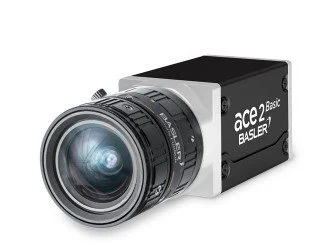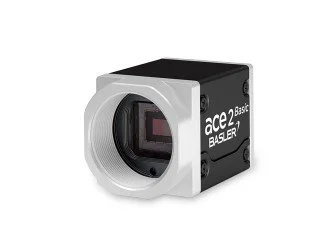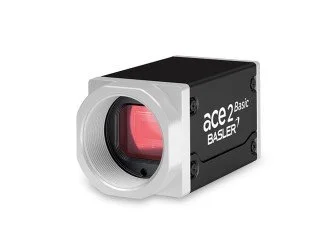Industrial Camera
Inside the Lens
Industrial Camera
Industrial cameras are essential in machine vision applications, providing high-resolution images for accurate analysis and automation. These durable devices improve quality control, defect detection, and process optimization by integrating with various systems. With features like high-speed imaging and intelligent algorithms, they help manufacturers enhance operations and product consistency. Their adaptability to tough environments ensures reliable performance, enabling companies to increase efficiency, lower costs, and maintain competitiveness in an automated market, thus transforming traditional manufacturing into intelligent, data-driven processes.
The integration of industrial cameras with artificial intelligence enhances machine vision by enabling real-time data processing and decision-making. These systems can detect defects and predict failures, reducing downtime and improving productivity. As automation grows, the need for advanced imaging solutions increases, driving innovations in camera technology, such as greater sensitivity and faster image processing. Adopting these advancements helps organizations lead in modern manufacturing, facilitating smarter operations and better products.

Area Scan Camera
Area Scan cameras are a fundamental component of industrial imaging systems, offering precise and comprehensive image capture capabilities.

Inspection Camera
The Inspection camera, a crucial tool in industrial settings, is designed to navigate and inspect hard-to-reach areas with its flexible mechanism.

Machine Vision Camera
The Machine Vision camera, an integral part of the industrial imaging landscape, stands at the forefront of cutting-edge technological innovation.
Industrial Camera for Machine Vision
The Basler Ace Series is a versatile industrial camera line tailored for machine vision applications, offering exceptional image quality and performance in various environments. With resolutions from VGA to 29 megapixels, these compact cameras ensure easy integration and enhanced connectivity through features like Power over Ethernet. They also provide advanced triggering and synchronization options for precise control in high-speed applications, enabling manufacturers to enhance accuracy and efficiency in their operations.
The Chromasens Line Scan Camera offers high-speed, high-resolution imaging for complex machine vision applications, enabling real-time analysis of moving objects. Its advanced technology enhances defect detection and quality control, optimizing production processes. Built to endure tough industrial conditions, it provides reliability across various sectors. With features such as multi-spectral imaging and flexible connectivity, the camera boosts operational efficiency and helps organizations remain competitive in an automated environment.
An industrial camera is a specialized imaging device designed to meet the demands of various industrial applications. Unlike standard cameras, these devices capture high-resolution images and videos, crucial for tasks such as quality control, inspection, and automation. Industrial cameras often feature advanced sensors and robust construction, enabling them to perform reliably in challenging environments. They can be equipped with different optics and lighting options to enhance image clarity in diverse conditions. Typically integrated into production lines, they facilitate real-time monitoring and analysis, driving efficiency and accuracy across manufacturing processes. Understanding their capabilities is essential for optimizing industrial operations.
Industrial cameras serve as vital tools across numerous sectors, enhancing processes such as quality control, automation, and inspection. These specialized devices capture high-resolution images and videos, enabling precise monitoring of production lines. In manufacturing, for instance, they identify defects in real-time, ensuring products meet stringent quality standards. Similarly, in research and development, industrial cameras facilitate detailed analysis of materials and components. Their robust design allows operation in harsh environments, while customizable optics and lighting options improve image clarity. Ultimately, the integration of industrial cameras streamlines workflows, boosts productivity, and supports data-driven decision-making in various industrial applications.
The lifespan of an industrial camera typically ranges from 5 to 15 years, depending on various factors such as usage, environment, and maintenance. Cameras operating in harsh conditions, like extreme temperatures or high levels of dust and moisture, may experience accelerated wear. Regular maintenance, including cleaning and software updates, can significantly extend their operational life. Additionally, advancements in technology may prompt businesses to upgrade sooner, even if the camera is still functional. Ultimately, understanding the specific requirements and potential limitations of industrial cameras can help organizations maximize their investment and ensure reliable performance throughout their lifespan.
- CCD Cameras
- CMOS Cameras
- Infrared Cameras
- Line Scan Cameras
- Thermal Cameras
- High-Speed Cameras
- 3D Cameras
- Area Scan Cameras
- Smart Cameras
- Color Cameras
Industrial cameras come in various types, each tailored for specific tasks and environments. The Area Scan camera excels in capturing detailed images of stationary objects, making it ideal for quality control inspections. Line Scan cameras, on the other hand, capture images of moving objects in a continuous line, perfect for high-speed production lines. Thermal cameras detect heat patterns, allowing for non-contact temperature monitoring in industrial applications. 3D cameras add depth perception, aiding in precision measurements and inspections. Understanding these diverse camera types enables industries to select the right technology, enhancing efficiency and accuracy in their operations.





